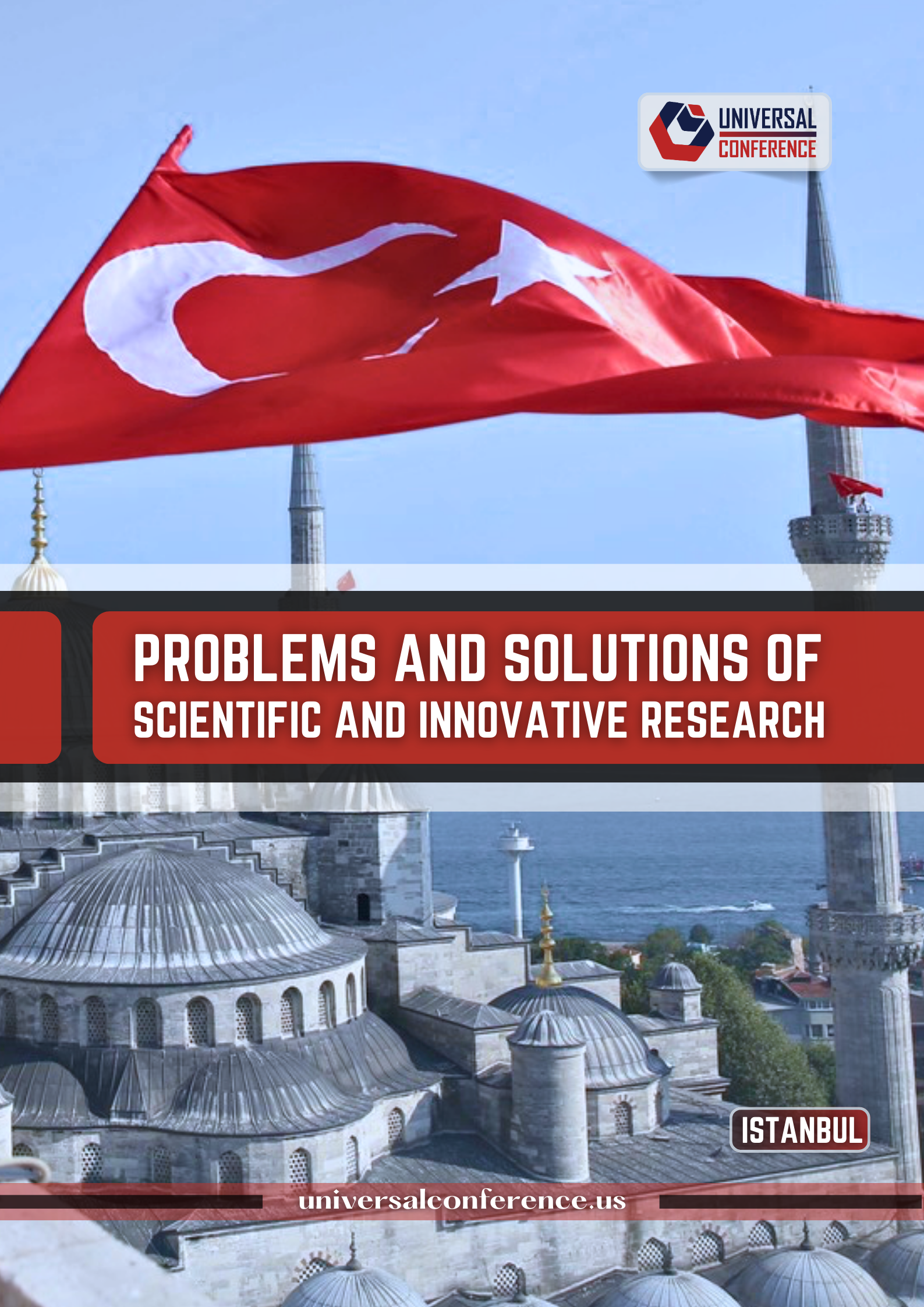The role of school in expanding the worldview of young ad
Keywords:
Youth, outlook, school, upbringingAbstract
Expanding the worldview of young adults is important for their future personal and professional development. The school is the main social institution in shaping the outlook of young people. This article analyzes how school affects the intellectual, moral, cultural and social development of young people. Also, the role of teachers and educational programs, family and school cooperation in the educational process is analyzed in the formation of the intellectual and moral image of young people. The article gives recommendations for increasing the influence of school and its effectiveness in the formation of the worldview of young people.
References
1. Olimov N. A. "Yoshlar dunyoqarashini shakllantirishda ta’lim va tarbiyaning o‘rni." Toshkent: O‘zbekiston Fanlar Akademiyasi nashriyoti, 2018. – 320 p.
2. Karimova S. T. "Maktab tizimida axloqiy tarbiya: nazariya va amaliyot." Toshkent: Ilm Ziyo nashriyoti, 2020. – 250 p.
3. R. A Utkurovich, R. G Utkurovna. “Teaching English Language To Primary Level Pupils At School” Ijodkor O’qituvchi 3 (36), 103-105, 2024
4. Xudoyqulov M. R. "O‘quvchilarni ijtimoiy tarbiyalashda o‘qituvchilarning roli." Samarqand: Ma’rifat nashriyoti, 2019. – 180 p.
5. Tursunova G. K. "Milliy va umuminsoniy qadriyatlar asosida tarbiya berish usullari." Toshkent: Yangi asr avlodi nashriyoti, 2021. – 275 p.
6. Yuldoshev A. O. "Yoshlarning intellektual rivojlanishida maktab va oila hamkorligi." Buxoro: Sharq nashriyoti, 2017. – 230 p.
7. Shokhista, R. (2023). The Significance Of Emphasizing Communicative Competence As The Foundation For Teaching Listening And Speaking Skills Rustamova Shokhista Sharifovna. International Journal of Contemporary Scientific and Technical Research, 25-28.
8. Rustamova, S. S. (2023, January). The Importance Of Speaking Activities In Teaching English. In International Conferences (Vol. 1, No. 1, pp. 357-361).
9. Sharifovna, R. S. (2022). Teaching Spoken English To Upper Class Pupils. Confrencea, 6(6), 87-89.
10. Sharifovna, R. S. (2022). Class Size And The Learning-Teaching Process In Upper Classes. Journal of new century innovations, 14(1), 86-98.
11. Sharipovna, R. S. Peculiarities Of Teaching English In Secondary Schools In Uzbekistan. International Journal of Innovations in Engineering Research and Technology, (2), 1-5.
12. Suleymanova, N. M. (2020). On The Nominative Nature Of The Sentence. Theoretical & Applied Science, (4), 307-309.
13. Сулейманова, Н. М. (2017). Номинативный аспект речевого процесса. In Humanities and Social Sciences in Europe: Achievements and Perspectives (pp. 76-82).
14. Suleymanova, N. M., & Idiyev, A. R. O. G. L. (2021). Gapning Nominativ Aspekti Va Uning Kommunikativ Jarayoni Haqida. Academic research in educational sciences, 2(12), 805-809.
15. Сулейманова, Н. М., & Абдуллаева, Л. Т. (2017). Имманентный характер синергетических свойств единиц языковой системы. In Инновации В Современном Языковом Образовании (pp. 61-65).
16. Ikrambayevna, S. D. (2024). Classification of Functions of Communicative Strategy and Tactics in Political Communication. Miasto Przyszłości, 50, 548-553.
17. Sattarova, D. (2024). Siyosiy Muloqotning Pragmatik Aspektlari. Tamaddun Nuri Jurnali, 5(56), 380-383.
18. Axmedova, D., & Zarmaskhonov, S. (2024, February). Exploring Global Perspectives In Language Teaching And Learning. In Conference Proceedings: Fostering Your Research Spirit (pp. 205-207).
19. Sattarova, D. (2024, January). Siyosiy Notiqlikning Milliy Mаdаniy Vа Lisoniy Tаhlili (Oʼzbekiston Respublikasi Birinchi Prezidenti Iа Karimov Nutqlari Asosida). In Международная конференция академических наук (Vol. 3, No. 1, pp. 5-7).
20. Makhmudova, G. N., & Gulomova, N. F. (2023). Unlocking the potential of the digital econ-omy in the EAEU countries: identifying and overcoming obstacles. π-Economy, 16 (4), 7–25. DOI: https://doi. org/10.18721/JE, 16401.
21. Гуломова, Н. (2022). Основные компоненты развития «умного» туризма в регионах. Направления развития благоприятной бизнес-среды в условиях цифровизации экономики, 1(01), 63-67.
22. Makhmudova, G., Gulomova, N., & Mirzaev, D. (2022). Legal aspects of cryptocurrency and blockchain technologies: Uzbekistan and foreign experience.
23. Jumayeva, M. (2022). Analysis Of The Views Of Scientists Of The Renaissance, Based On A Unique Approach To Pedagogy And Education And Upbringing. Science and Innovation, 1(5), 26-29.
24. Sattarova, D. (2023). Komunikativ Diskursning Tadqiqot Ob’yekti. Молодые ученые, 1(22), 41-43.
25. Ikramboyevna, A. D., & Ikramboyevna, S. D. (2023). The Ways of Forming Secondary Nomination in Uzbek Language and Its Impact on Linguistics.


